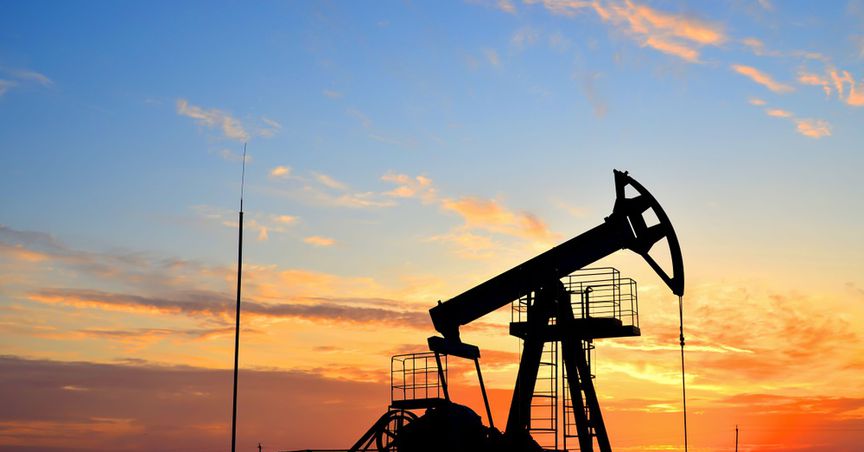Summary
- Storebrand, Norway based financial services firm has reportedly dumped stocks of fossil fuel players
- The world is looking towards a greener recovery while the economies have opened with enhanced safety measures in place
- BP Plc has met its agreed divestment target of $15 billion for a full year ahead of schedule
Some of the global oil giants and miners have lobbied against climate action. As a result, major investors across the globe have started dumping these carbon-emitting industries. Storebrand, Norway based financial services firm has reportedly dumped stocks of fossil fuel players such as ExxonMobil and Chevron, US oil giants as well as miner Rio Tinto, as these companies were accused of using their political influence to block the transition to greener policies. Storebrand is among the first to dump shares in polluting industries, which have lobbied to delay the implementation of green procedures and policies.
According to media reports, the Nordic hedge fund worth more than £68.6 billion, has divested stocks of biggest oil companies and miners, which vouched against climate action. Major investors across the world are looking forward to divesting away from the fossil fuel industry and invest in available alternatives of Renewable energy sources such as solar and wind energy.
UK witnessed a landmark move recently, as the government-backed National Employment Savings Trust (Nest) scheme, UK’s biggest pension fund with around nine million members, began divesting from fossil fuels.
What would the divesture mean to the fossil fuel players?
The divesture would mean that some of the world’s biggest mining and fossil fuel companies, can never be part of the portfolio of major investors and institutions, as long they derive profits by contributing carbon emissions to the world. Just like Covid-19 pandemic, climate change can cause catastrophic damage and bring our life to a standstill. The world is looking towards a greener recovery while the economies have opened with enhanced safety measures in place. However, there are some sectors in which it is difficult to reduce the carbon footprint. For instance, it is difficult to enforce environmental regulations in the aviation sector. Through technological improvements, the industry has by itself brought about significant fuel economy and lower greenhouse gas emissions in the past four decades. Although the road ahead seems difficult given the time constraints being stipulated by the various regulatory authorities.
Moreover, there are certain companies which don’t seem very concerned and are still damaging the environment. Global miner, Rio Tinto Plc (LON:RIO) made the headlines after the Company blasted the Juukan Gorge 1 and 2 – Aboriginal rock shelters, which dates back to 46,000 years, in order to access high-grade iron ore mine in the Western Pilbara region (Australia).
The Juukan Gorge 1 and 2 – Aboriginal rock shelters had developed deep historical and cultural significance over time as they are the only inland site across the continent, showing human occupation continuing through the last Ice Age.
The mining blast pulled by the Anglo-Australian miner triggered considerable anguish among the traditional landowners of the Puutu Kunti Kurrama and Pinikura (or PKKP). The heritage site is an integral part of the Aboriginal community and for their culture, and it also holds a global significance while forming a pivotal part of heritage for native Australians.
Do read: Saudi Aramco to make dividend payments despite the carnage in the battered oil sector
Plight of oil producers
The oil sector has been under the pump during the recent months of the carnage caused by the coronavirus pandemic. The global oil demand tumbled to steep lows due to the lockdowns imposed by governments across the globe, to curb the spread of the deadly pandemic, which has claimed nearly 50 thousand lives across the UK. The lockdowns resulted in seizing of economic activities, which drove the demand for transport fuels to all-time lows. Worldwide oil prices collapsed on lowering demand and rising supply, as well as soaring uncertainty about the economic future, resulting in a crash in financial markets as well.
BP Plc to move towards lesser carbon emissions
Bernard Looney, BP's Chief Executive, expressed its belief that the climate would be adversely affected by the burning of oil and gas. Therefore, BP is likely to drive the change by investing in transition mechanisms to renewable energy.
In February 2020, BP had set a target to reduce its carbon footprints to net-zero by 2050. This is likely to be done by reducing the emissions of greenhouse gases produced in the UK every year. Environmentally friendly measures such as tree-plantation and carbon capture technologies could help in offsetting 360 million tons of greenhouse gases. The aim to achieve the net-zero target is the next major move towards a greener future.
BP Plc (LON: BP.), a leading oil, and gas company, had announced earlier that it sold its petrochemical business to Sir Jim Ratcliffe's Ineos Group for $5 billion (£4.1 billion). This move made by the company would not just reduce the carbon footprint of the company but also bolster the financial position of the company. The global oil business, BP Plc operates in nearly 80 countries with a representative base of more than 70 thousand.
BP with this deal has met its agreed divestment target of $15 billion for a full year ahead of schedule. The deal is going to serve two purposes for the company, on the one hand, it will help the company reduce a debt pile, while on the other it would bolster its plan to sharply cut carbon emissions by 2050.
Shell to follow the suit
British-Dutch oil and gas company, Royal Dutch Shell Plc (LON: RDSA) has embarked upon a journey to turn itself into a net-zero carbon company by the year 2050. For this, the company is preparing to sell more green energy to support the reduction of carbon emission. The company wishes to eliminate carbon discharge & industrial effluents by creating carbon capturing and storing facilities.
Key Metrics: BP., RIO, & RDSA
|
|
CMP (GBX) before market close as on 25 August 2020 at 3:29 PM+ 1 |
Marker Capitalisation (£ million) |
52 weeks High (GBX) |
52 weeks Low (GBX) |
1 Yr Return |
|
BP Plc (BP.) |
274.25 |
57157.69 |
524.6 |
233.7 |
-42.22% |
|
Royal Dutch Shell Plc (RDSA) |
1126 |
47590.78 |
2408.5 |
970.8 |
-48.38% |
|
Rio Tinto Plc (RIO) |
4617 |
58975.14 |
4959.5 |
2968 |
20.33% |
(Source: London Stock Exchange)
Due to the onslaught of the coronavirus pandemic, the fossil fuel industry witnessed a carnage as the demand for oil dropped drastically. As most of the economies have now reopened, they are looking forward to clean, green, and sustainable development. The divesture from these companies would certainly impact the fundraising capacity of these big companies. However, this indirectly raises the alarm for the fossil fuel industry.





